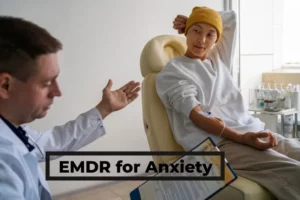Introduction
Among the many unfortunate consequences of war is the impact of war crimes on the mental health of those involved.
Civilians and the military have to suffer from the extreme physical impacts of war, while their mental health is also significantly impacted. There is a drastic decline in the mental health of those directly affected by wars. Women and children are the most affected by war as they are the most vulnerable groups in any society. The extent to which people’s mental health is affected depends on the trauma they endure. We must support and rehabilitate the victims of war crimes.
What is a war crime?
A war crime is a severe violation of the laws or customs of war as defined by international customary law and international treaties. It may be killing civilians or hostages, genocide, mental or physical trauma to prisoners of war, torturous living conditions for civilians and prisoners, or carrying out experiments on prisoners.
How is war crime related to mental health?
The catastrophic events of war affect the citizens of a country.
- War leads to numerous deaths and casualties. While the physical trauma, such as disability and loss of limbs, is more evident, mental trauma amongst citizens and soldiers remains less addressed.
- A war destroys communities, families, and relationships. War disrupts nations’ social and developmental fabric, thus affecting the citizens.
- The trauma of witnessing people being bombed or shot to death, losing loved ones, escaping from war-torn areas, and being separated from their families are all traumatic experiences that lead to mental health deterioration. Once they recover, people forget their physical pains, but they are hard to ignore. For example, the effects of the holocaust are still fresh in the minds of its victims.
According to the World Health Organisation, people experience more mental than physical suffering due to war. It can hinder their ability to function fully in their day-to-day lives. Affected people can suffer from frequent episodes of depression, anxiety, and panic attacks that can be detrimental to their health.

How common is mental trauma among war crimes?
Mental trauma is widespread amongst war criminals. Many psychologists have explained how adverse events in life can cause psychosis.
- The duration, frequency, and extent of trauma indicate the severity of psychosis among patients. Those subjected to extensive psychological and physical trauma are highly likely to suffer from severe depression and other mental illnesses.
- Specific theories, such as the strain theory of adolescence, suggest that an individual’s age is also directly related to the extent of mental trauma they may go through.
What is the reason behind Mental Trauma Associated With War Crimes?
- It is not a consequence of a single event; instead, it is an effect of exposure to multiple setbacks.
- Mental trauma is prevalent among the victims of war crimes because they suffer from several traumas. For example, the mental suffering of a prisoner of war can have several stages: childhood trauma, pre-imprisonment trauma, imprisonment trauma, and post-imprisonment trauma.
- Developmental transitions from childhood to adulthood with extensive trauma can sustain ill effects on the victim’s mental health.
What are the adverse effects of mental trauma related to war crimes
War zone traumatic experiences are widespread, affecting many people.
- The adverse effects of these experiences are likely to worsen over time. Traumatising war experiences can turn people’s lives upside down and even disrupt their daily activities. Many people suffer from post-traumatic stress disorder and depression.
- Mental illnesses can present themselves differently in different individuals. Some people suffer in silence, whereas others become aggressive and violent and show unpredictable emotional changes.
- Evacuation/displacement of people, separation from their families and loved ones, living under constant fear, lack of food, water, and shelters, and experiencing torture at the hands of their captors can all be causes of extreme mental trauma.
- There can be multiple external and internal factors that people may respond to differently. The duration, type, and extent of mental illness depend on the size of the trauma an individual has survived.
- Physical trauma can also lead to mental trauma. For example, disability or losing a limb can cause extreme anxiety and depression for the crushed victim because they cannot work and provide for their families.
- Bombings during the war that lead to body and facial disfiguration can cause depression among people. Most people do not share their emotions and suffer in silence, which can cause them to undergo mental trauma.
- People suffering from mental health issues associated with war crimes should be encouraged to seek help. They need to realise that their condition is treatable.
- Self-management techniques like meditation may help those victims who are not very badly affected. People who are severely affected should undergo treatment, counselling, and therapy at rehabilitation institutes.
- The best way to support these victims is to let them work coercively with their clinicians and psychologists.
- Psychologists teach war-affected people self-efficiency, self-belief, and self-control and eventually make them confident to live in society again. They assign the patients specific tasks and assist them through different resources.
How To Seek Help And Recover from mental trauma
People experience both mental and physical suffering. People can suffer from various mental issues such as depression, anxiety, panic attacks, etc. It can hinder their abilities and everyday life to live. Over time, people forget their physical trauma, but overcoming mental issues is challenging. So sometimes, people suffering from mental trauma need some help. They are like
- Social help is essential.
- The family member should take care, cooperate and help.
- If it is necessary, should go for treatment.
- Sometimes need the help of a psychological counsellor.
- Meditation and mindfulness help to heal themselves
Conclusion
War crimes can affect individuals of any age, gender, and physical and mental strength. You can help victims of war crimes by encouraging them to seek timely help and support. Exposure to repeated or high-intensity traumatic experiences leads to mental illnesses among war criminals. Sometimes, it is easier to recover from physical trauma than deep-rooted emotional trauma. But in the end, we should know that the ill effects of war crimes on mental health are treatable.










